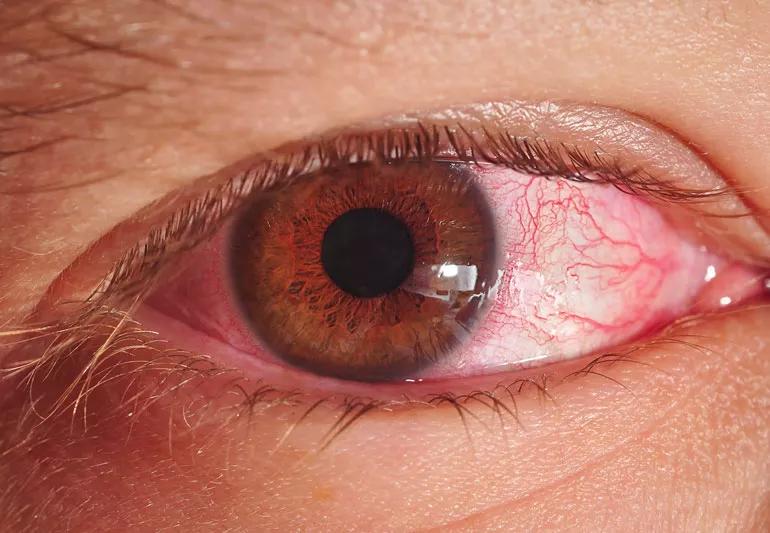An ophthalmologist explains why winter should mean more hand-washing

Pink eye, also called conjunctivitis, is a common eye infection that causes an inflammation of the conjunctiva — the tissue that lines the inside of your eyelid that keeps your eyelid and your eyeball moist. The condition gets its name when the blood vessels in the membrane covering your eye become irritated or inflamed, causing your eye to look pink.
Advertisement
Cleveland Clinic is a non-profit academic medical center. Advertising on our site helps support our mission. We do not endorse non-Cleveland Clinic products or services. Policy
Ophthalmologist Rishi P. Singh, MD, says pink eye is most commonly caused by viruses (including the coronavirus that causes COVID-19) and bacteria. It can also be caused by allergens or irritants like smoke, chlorine or dirt.
There’s a reason pink eye is more common in winter, though. “Because it’s spread through direct contact, it can be passed around easily by people who have bacterial or viral conditions like cold or flu — which are also more common in colder weather months,” Dr. Singh says. You can get it by not washing your hands — then touching your eyes — after coming into contact with someone who’s infected (or a surface they touched.)
If you’re infected, you can also spread it from one infected eye to the other, or if you blow your nose (where bacteria and viruses gather) then touch your eyes without washing your hands.
Also remember, in cold weather months people aren’t exposed to as much sunlight (which helps your body process vitamin D). This reduction in vitamin D can sometimes weaken your immune system. You’re more likely to get sick, and others are, too. So be mindful of public places and shared surfaces like door knobs or and elevator buttons. Also pay attention to not-so-public places like airplanes and pillows in hotel rooms where the virus can hang out.
Advertisement
The most important thing you can do to prevent getting a pink eye infection or spreading it to others, Dr. Singh says, is to wash your hands frequently with soap and use hand sanitizers — exactly the way you’d avoid the cold, flu, or similar illnesses. And avoid touching your eyes.
A conjunctivitis infection can last from 10 days to two weeks. “But you should see an ophthalmologist — a doctor trained to treat eye conditions — or your family doctor if you have inflammation or symptoms like redness, discharge, watery eyes or pain that don’t seem to be going away,” he notes.
Depending on the cause and severity, there are many treatment options for pink eye. In mild or moderate cases doctors recommend cold compresses and preservative-free artificial tears, Dr. Singh says. If your case is more severe, a prescription for a steroid or anti-inflammatory eye drops can help.
“If you’re a parent and your child has bacterial or viral conjunctivitis, it’s best to keep them home from school, day care or gathering with friends until the danger of being contagious is over,” he notes.
Advertisement

Sign up for our Health Essentials emails for expert guidance on nutrition, fitness, sleep, skin care and more.
Learn more about our editorial process.
Advertisement

Pink eye tends to start in one eye before spreading to the other, while allergies usually affect both eyes at the same time

Early morning red eyes can be a sign of several conditions, like dry eyes, allergies and eye strain

See an eye specialist if your pain isn’t going away and comes with other symptoms

Your eyes could be burning because of allergies, elevated salt levels, dry eyes and more

One is a raised yellow spot on your eye, the other is a fleshy growth

When worn incorrectly, contacts can cause or worsen dry eye symptoms

Preservative-free lubricating drops, a humidifier, sunglasses and preventive medications can help with dry eyes, no matter the season

In moderation, vitamins A, C, D, E, B12 and omega-3 fatty acids can improve and maintain your eye health

Even small moments of time outdoors can help reduce stress, boost mood and restore a sense of calm

A correct prescription helps your eyes see clearly — but as natural changes occur, you may need stronger or different eyeglasses

Both are medical emergencies, but they are very distinct events with different causes